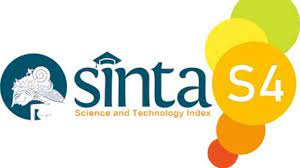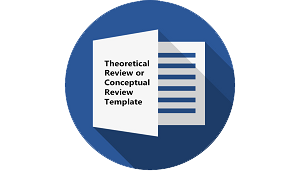The Effect of Peer Review on Students’ Motivation and Writing Ability
DOI:
https://doi.org/10.30957/ijoltl.v5i1.611Keywords:
per review, essay, writing motivationAbstract
The objective of this research was aimed to investigate the effect of peer review on students’ motivation and ability in writing recount text. The method of the research was a quasi-experimental design with a control and experimental group and a post-test only. The population of this research was the entire eight grade students of SMPN 1 Tanggunggunung. The cluster random sampling was used in the sampling technique. There were two classes of eight grade students as the sample of this research. They were VIII D that consists of 32 students as the control class and VIII G that consists of 30 students as the experimental class. Tests and questionnaires were the instruments of this research. The data collected from the tests were analyzed by using independent sample t-test and MANOVA through SPSS. Results show that the independent sample t-test was 0.001 for motivation and 0.000 for the writing ability. Moreover, the result of the MANOVA test was 0.000. The results were consulted to the score of the significant value generated Sig. (P-value) < α = 0.05. Thus, Ho was rejected and Ha was accepted. In other words, the result of the study revealed that peer review gave a significant effect on the students’ motivation and ability in writing recount text. It can be concluded that there is a significant effect on the students’ writing motivation and writing ability who taught using peer review.
Downloads
References
Arikunto, Suharsimi. (2006). PenelitianTindakanUntuk Guru, Sekolah, dan Dosen, Yogyakarta: RinekaCipta.
Ary, Donald. (2010). Introduction to Research in Education. 8th Edition. Canada: Wadsworth.
Atkinson, J.W.. (1957). Motivational determinants of Risk-Taking behavior, Journal of Psychological Review, 64, 359-372.
Bandura, A. (1997). Self-efficacy: The Exercise of Control. New York: Henry Holt & Co.
Bartels, Nat. (2003). Written Peer Response in L2 Writing. Germany: English Teaching Forum.
Brown, H. Douglas. (1998). Principle of Language Learning or Teaching. San Francisco: Prentice Hall Inc.
Caulk, N., (1994). Comparing Teacher and Student Responses to Written Work, Journal of TESOL Quarterly, 28, 181-188.
Creswell, John W. (2012). Educational Research. Planning, Conducting, and Evaluating Quantitative and Qualitative Research. 4thEdition. Boston: Pearson Education.
Dawson, Catherine. (2010). MetodePenelitianPraktis: Sebuah Paduan. Yogyakarta: Pustaka Pelajar.
Dörnyei, Zoltán. (2002). Motivation & Motivating in the Foreign Language Classroom. Journal of Modern Language, 78, 515-523.
Elliott, A. J., (1999). Approach and Avoidance Motivation and Achievement Goals, Journal of Educational Psychologist, 34, 169–179.
Ellis, G., (1996). How Culturally Appropriate is The Communicative Approach?, ELT Journal, 50 (3), 213-218.
Farida, Amalia. (2006). Cadence. Bandung: CCF.
Farrah, M. (2012). The Impact Of Peer Feedback On Improving The Writing Skills Among Hebron University Students. An – Najah Uni. J. Res.
Ferris, D. R. (2014). Response to Student Writing: Implications for Second Language Students. New Jersey: Lawrence Erlbaum Associates, Inc., Publishers.
Fraenkel, Jack R. and Norman E. Wallen. (2012). How to Design and Evaluate Research in Education.7th Edition. New York: McGraw-Hill.
Gardner, R.C. & Lambert, W. E. (2011). Motivational Variables in Second Language Learning. Canadian Journal of Psychology, 1959, 13, 266.
Hansen, Liu. (2005). Guiding Principles for Effective Peer Response. Oxford University Press.
Harmer, J. (2007). How to Teach English: An Introduction to The Practice of English Language Teaching. Essex: Longman.
Harris, K.R., Graham, S., Mason, L.H., & Friedlander, B. (1979). Powerful Writing Strategies for All Students. Baltimore, MD: Brookes Publishing Co., Inc.
Hedgecock, J.S., (2005). Taking Stock of Research and Pedagogy in L2 Writing. In E. Hinkel (Ed.), Handbook of research in second language teaching and learning. Mahwah, NJ: Lawrance Erlbaum publishers.
Hidi, S., & Anderson, V. (1992). Situational Interest and Its Impact on Reading and Expository Writing, Journal of The role of Interest in Learning and Development 215–238.
Jacobs, G.M., Curtis, A., Braine, G. and Huang, S.Y. (1998). Feedback on Student Writing: Taking The Middle Path, Journal of Second Language Writing 7: 307–17.
Latief, Muhammad Adnan. (2016). Research Methods on Language Learning. Malang: UM Press.
Le, V, (2000). Language and Vietnamese pedagogical contexts. In J. Shaw, D. Lubelska & M. Noullet (Eds.), Proceedings of the Fourth International Conference on Language and Development (pp. 73-80). Bangkok: Asian Institute of Technology.
Lee, K, (2000). Augmented Reality, Journal of Education and Training, Vol 56 No. 2.
Legget, E.L and Dweck C.S. (1987). A Social Cognitive Approach to motivation and Personality, Journal of Psychological Review, No. 95, Stanford: Stanford University.
Leggett, E. L., & Dweck, C. S. (1987). Children’s effort/ability reasoning: individual differences and motivational consequences, Paper presented at the Biennial Meeting of the Society for Research in Child Development, Baltimore, MD.
Li, W., & Lee, A. (2005). A Review of Conceptions of Ability and Related Motivational Constructs in Achievement Motivation. Journal of Quest, 56, 439-461.
Rotter. J.B. (1966). Generalized Expectancies For Internal Versus External Control of Reinforcement, Journal of Psychological Monographs: General and Applied, 80(1), 1-28.
Weigle, C. S. (2002). Assessing writing. Cambridge: Cambridge University Press.
Weiner, B. (1986). Attribution, Emotion, and Action. In R. M. Sorrentino & E. T. Higgins (Eds.), Handbook of motivation and cognition: Foundations of social behavior (pp. 281–312). New York: Guilford Press.
Wentzel, K.R. and Asher, S.R. (1995). Academic Lives of Neglected, Rejected, Popular, and Controversial Children, Journal of Child Development, 62 (1).
Wiersman, W., and Jurs S.G. (2009). Research Method in Education an Introduction. US: Pearson Education Inc.
Wigfield, A., & Eccles, J.S. (2001). Development of Achievement Motivation. San Diego: CA Press.
Downloads
Published
How to Cite
Issue
Section
License
Authors who publish with this journal agree to the following terms:
- Authors retain copyright and grant the journal right of first publication with the work simultaneously licensed under a Creative Commons Attribution-ShareAlike 4.0 International License that allows others to share the work with an acknowledgement of the work's authorship and initial publication in this journal.
- Authors are able to enter into separate, additional contractual arrangements for the non-exclusive distribution of the journal's published version of the work (e.g., post it to an institutional repository or publish it in a book), with an acknowledgement of its initial publication in this journal.
- Authors are permitted and encouraged to post their work online (e.g., in institutional repositories or on their website) prior to and during the submission process, as it can lead to productive exchanges, as well as earlier and greater citation of published work (See The Effect of Open Access).












